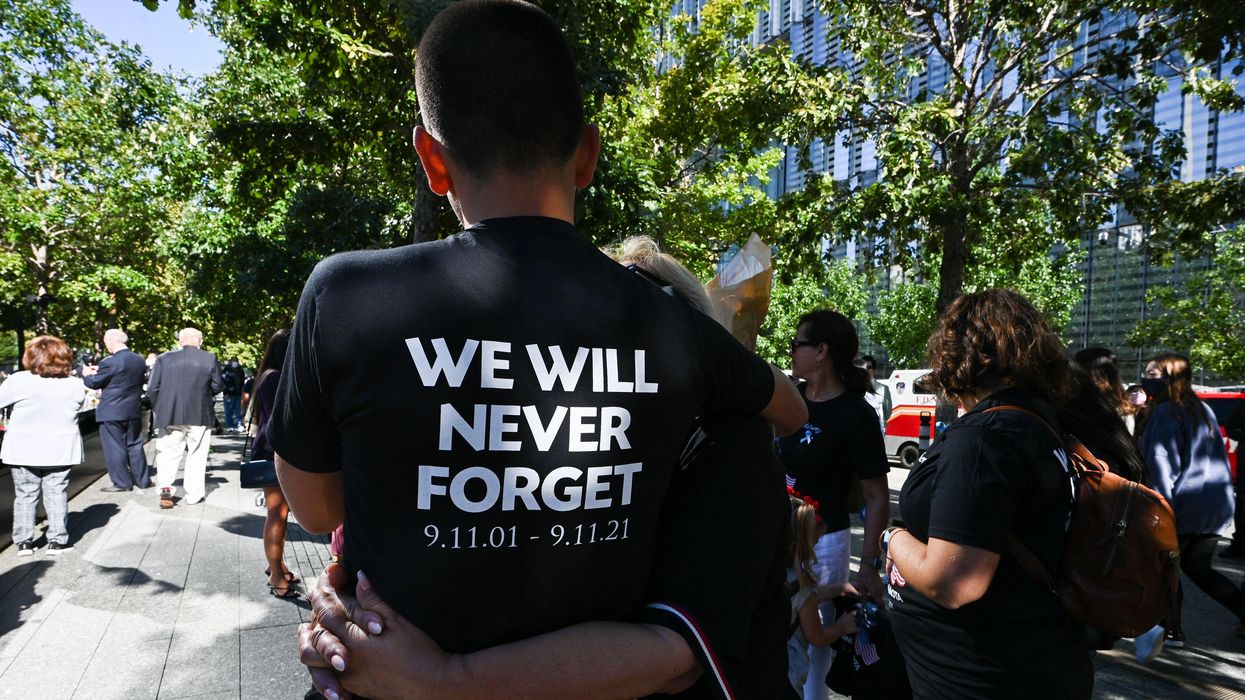I was on Capitol Hill on Sept. 11 and watched the second plane hit the World Trade Center on live TV. I ran across the National Mall to connect with my wife, who had since talked her way past security and into the federal government building where our 1-year-old was in daycare.
When we commuted to work a few hours earlier, we had driven past an intact Pentagon in a world that seemed sane. On the drive home, burnt kerosene fumes came into the car through the air conditioning vents.
That night a scared and scarred nation looked to Washington to reassure it, bring comfort, and show resolve during one of our darkest hours. Members of Congress answered history's call and stood on the steps of the Capitol, Democrats next to Republicans, senators next to representatives, and, after a moment of silence, broke into an impromptu rendition of "God Bless America."
In 2001, we were a bitterly divided country that had witnessed Bill Clinton's impeachment just a few years earlier, followed by an election decided by the Supreme Court in December 2000, and in April 2001 civil unrest and protests engulfed the streets of Cincinnati over the police shooting of an unarmed African American teenager. But when the nation and world needed to see America united and strong, when our elected leaders needed to put country over party, when the love of this great nation needed to exceed hyper-partisanship, Members of Congress stood together as colleagues, friends and citizens.
The "God Bless America" moment didn't last very long, but at least there was a recognition by the vast majority of representatives and Senators that united we stand while divided we fall.
Fast forward 20 years. After rioters broke into the Capitol on Jan. 6 carrying the Confederate flag and symbols of white supremacy through Statuary Hall, congressional leadership displayed resolve and a commitment to the constitutional process. However, instead of reflecting on the blood that was just shed in our symbol of representative democracy, almost 150 Republicans voted to overturn the election results, as if the mayhem from earlier in the day had never happened.
For years we've been told that if a true national emergency arose, our elected representatives could put aside party labels and political gamesmanship to come together for the good of the country. If an insurrection and mob violence don't constitute a national emergency, what does? Maybe a global pandemic?
Covid-19 has killed over 650,000 Americans in less than two years, which is roughly the number of Americans who perished during World War I, World War II, the Korean War and the Vietnam War — combined. Is this the type of national emergency that gives rise to a commitment to unity over division? Obviously not. Instead, we have a completely absurd discussion over masks and some elevate online quacks over scientists when it comes to the safety of our vaccines.
I have worked for or with Congress for the entirety of my professional career. The most satisfying part of that journey has been collaborating with public servants — members of Congress and their staff — on myriad projects aimed at moving the country forward. The majority of them care more about solutions than self-promotion. Several decades ago, I would have said "the vast majority." A couple of years ago, that statement would have been "the great majority." Today? "A majority." Tomorrow?
Are we truly more divided today than we were 20 years ago? I don't think so. We've been a nation divided for most of our existence, but we've never let that stop us from coming together for the good of the country or when a national emergency demands it. What has changed is that we used to have a national identity that we could all agree on.
We stood for something, we embodied Reagan's "shining city on a hill," and disagreeing with each other was part of the process and that national identity. What has changed is that we've allowed those who benefit from dividing us to sell a narrative based on tribalism and hatred. They've dialed into an underlying anger in the country and embraced an us-versus-them mentality that is amplified on social media, partisan cable television, and fundraiser after fundraiser. The national identity is so fractured that Americans view neighbors and relatives they disagree with as enemies.
The tragic events of 9/11 shook this country to its core, and I hope that as Americans reflect on the 20th anniversary, they remember that we have more in common than we think. Republicans and Democrats standing together, singing "God Bless America" in our darkest hour, doesn't have to be just a memory. But that can only happen if we recognize the humanity of those who are different from us.




















